Inspiration
Written by Caitlin Graaf
Times have changed since the mid-late 90s, when tourism in Africa was driven by trophy hunting. Today, tourism has evolved into a meticulously planned photographic safari industry that is underpinned by a staunch resolve to protect wildlife, wild places, and local people. Embarking on a carefully crafted Botswana eco safari is an ideal way to experience this first hand.
Learn more about Ker & Downey® Africa’s Responsible Travel Legacy program.
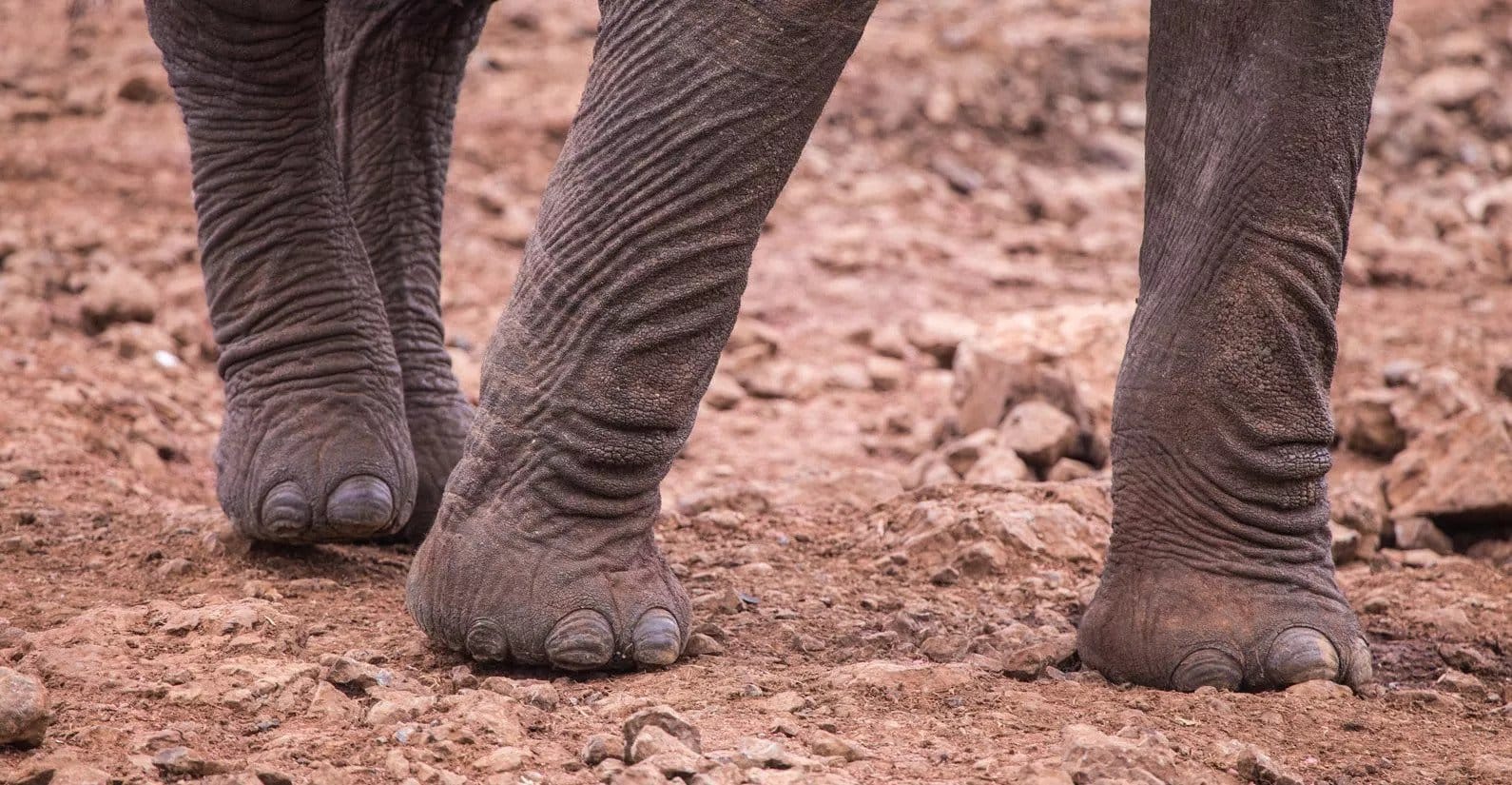
All travelers have the choice to become educated and book trips with knowledgeable professionals that will advocate for sustainable tourism down the supply chain. Traveling in this manner not allows guests more authentic experiences, but also allows individuals to leave a legacy in southern Africa, one that promotes the conservation of wildlife and the protection of local people.
Across Africa, exceptional safari opportunities are available, each with their own highlights and personality. But for those who seek to connect with local cultures, flora, and fauna beyond the norm, a Botswana eco safari is tough to beat. The country’s strong emphasis on local stakeholdership and strict regulations on tourism operations more proactively leverage tourism for a force for good perhaps than any other safari destination on the continent.
A Botswana eco safari is incomparable for a number of reasons, perhaps none more influential than the country’s unshakable determination for the conservation of wild spaces. Over 45% of Botswana’s land is protected and categorized according to eight categories including national parks, game reserves, forest reserves, private concessions, wildlife management areas, national monuments, world heritage sites, and Ramsar sites (a convention to protect vital wetland areas).
In the country’s premiere safari destination, the coveted Okavango Delta, a collection of private concessions ranging in size from about 800 – 2,000-square kilometers flank the Moremi Game Reserve. These vast tracks of land hold a special place in the Botswana eco safari world.
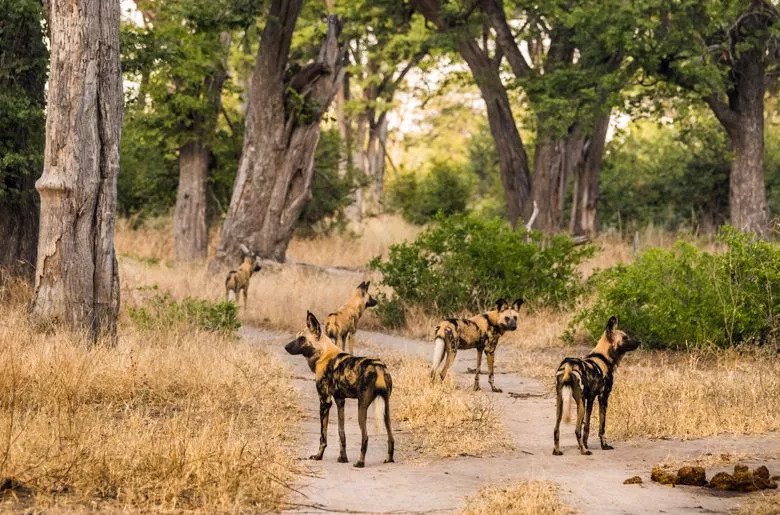
Each private concession is individually rented by deserving tourism conservation entities that successfully navigate the country’s robust and anonymous bidding and vetting process. The concession is held for 15 years thereafter until the process begins again, ensuring that the standards of the Botswana eco safari industry stay high.
Concession fees feed back into Botswana’s Land Boards, government, and Tourism Department and concession renters pay additional fees for each vehicle, aircraft, and boat used on their property to help mitigate their impact and keep vehicle numbers low.
This rigorous vetting process has also allowed local stakeholdership to increase; concessions are, in many cases, controlled or co-managed by local groups and Botswana eco safari lodges provide employment for many local people.
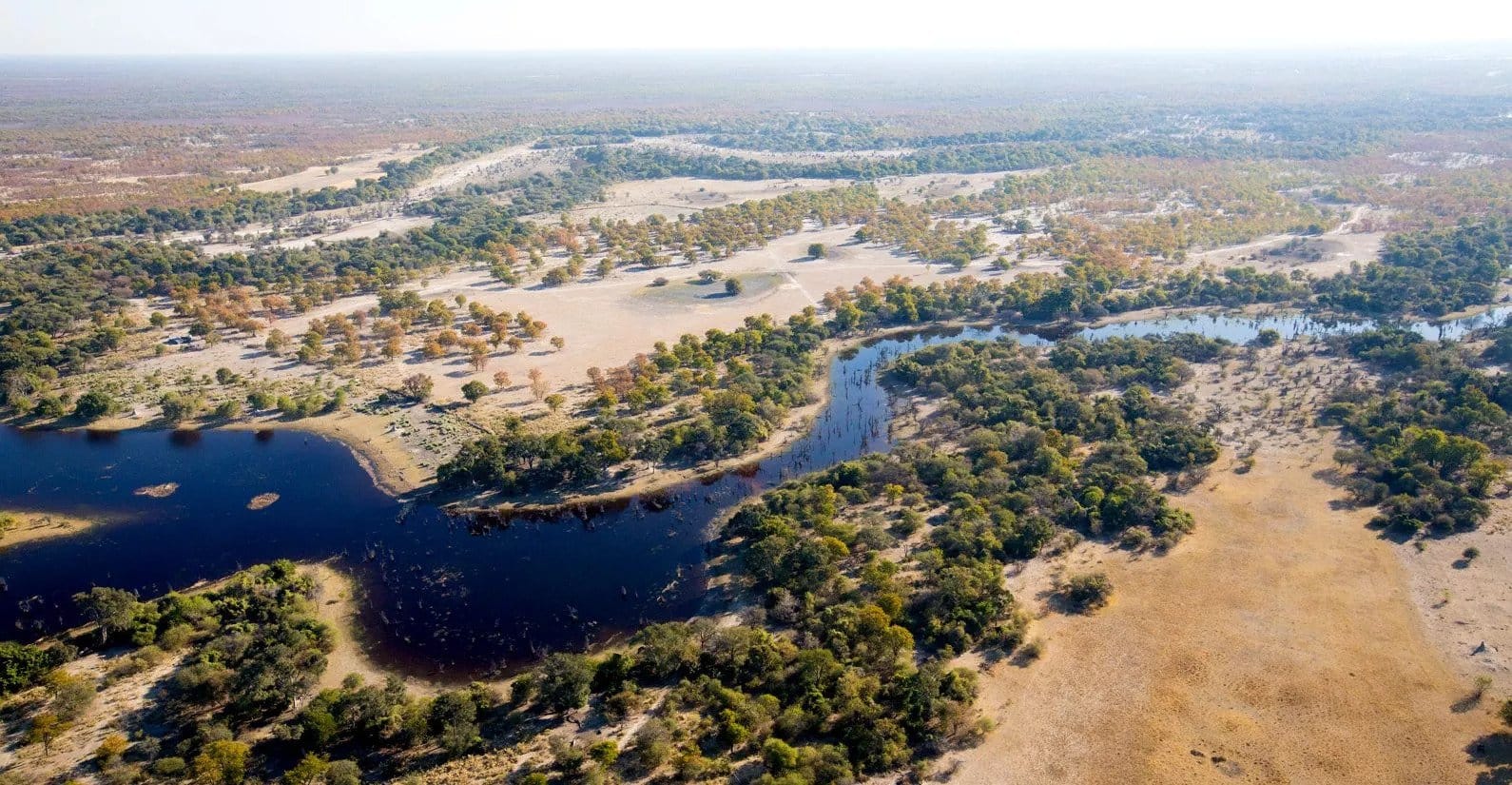
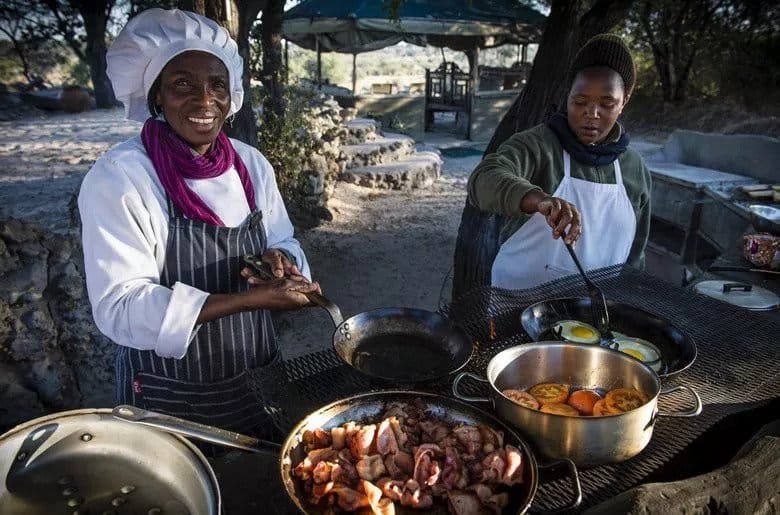
One such case is the Khwai Concession, formed by local Khwai villagers and currently managed by the Khwai Development Trust. Established in 2000, the Trust is a perfect example of tourism as a force for good, advocating for the sustainable use of the concession’s natural capital as well as promoting well-being for local peoples.
Tourism income here plays an important role in uplifting community members by paying annual dividends, building houses for homeless villagers, provides a monthly living stipend for elderly residents, and even funding the unexpected occurrences of living in such a remote corner of the world including emergency hospital visits.
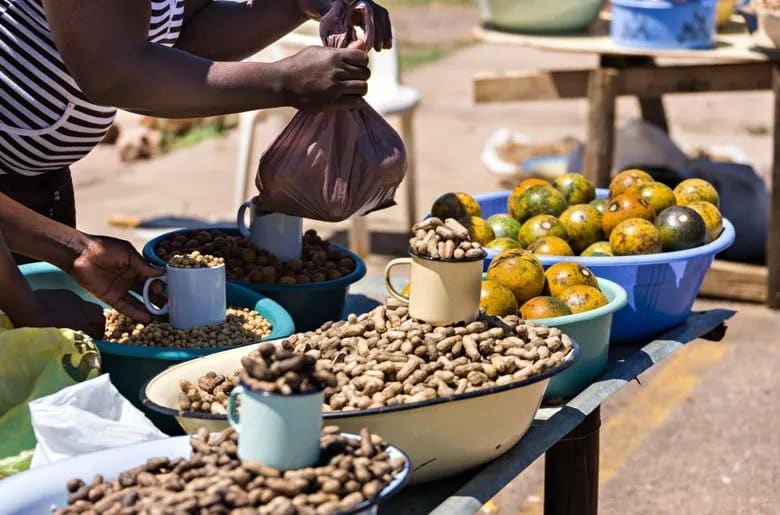
Instances where a Botswana eco safari creates a lasting impact on conservation and community abound; incredible stories of cross-cultural collaboration and innovative grassroots change can be found across the country. Lucky for travelers, the good goes both ways. Not only does responsible travel create positive change on the ground, it also allows travelers experiences beyond the norm.
Private concessions’ heavy regulations, such as a pre-determined (and always low) bed allotments and low vehicle density speak to the Botswana eco safari ethos of low-volume, high return tourism. Each guest is awarded with an experience far more akin to real and truly wild Botswana than those visiting National Parks, where human presence is not as closely monitored.
Innovation comes in many shapes and sizes across the Botswana eco safari landscape. From expertly managed private concessions to green initiatives like Chobe Game Lodge’s silent electric safari vehicles that reduce ecological impact and allow guests to get closer than ever to wildlife without being disruptive, and mobile tented camps that allow travelers to explore new, untouched areas of the bush without leaving a trace.
Each instance of environmentally and culturally sensitive invention in Botswana offers a reciprocal relationship between traveler and destination, preserving the destination for a long time to come and providing the traveler with extraordinary experiences found few places outside of a Botswana eco safari.
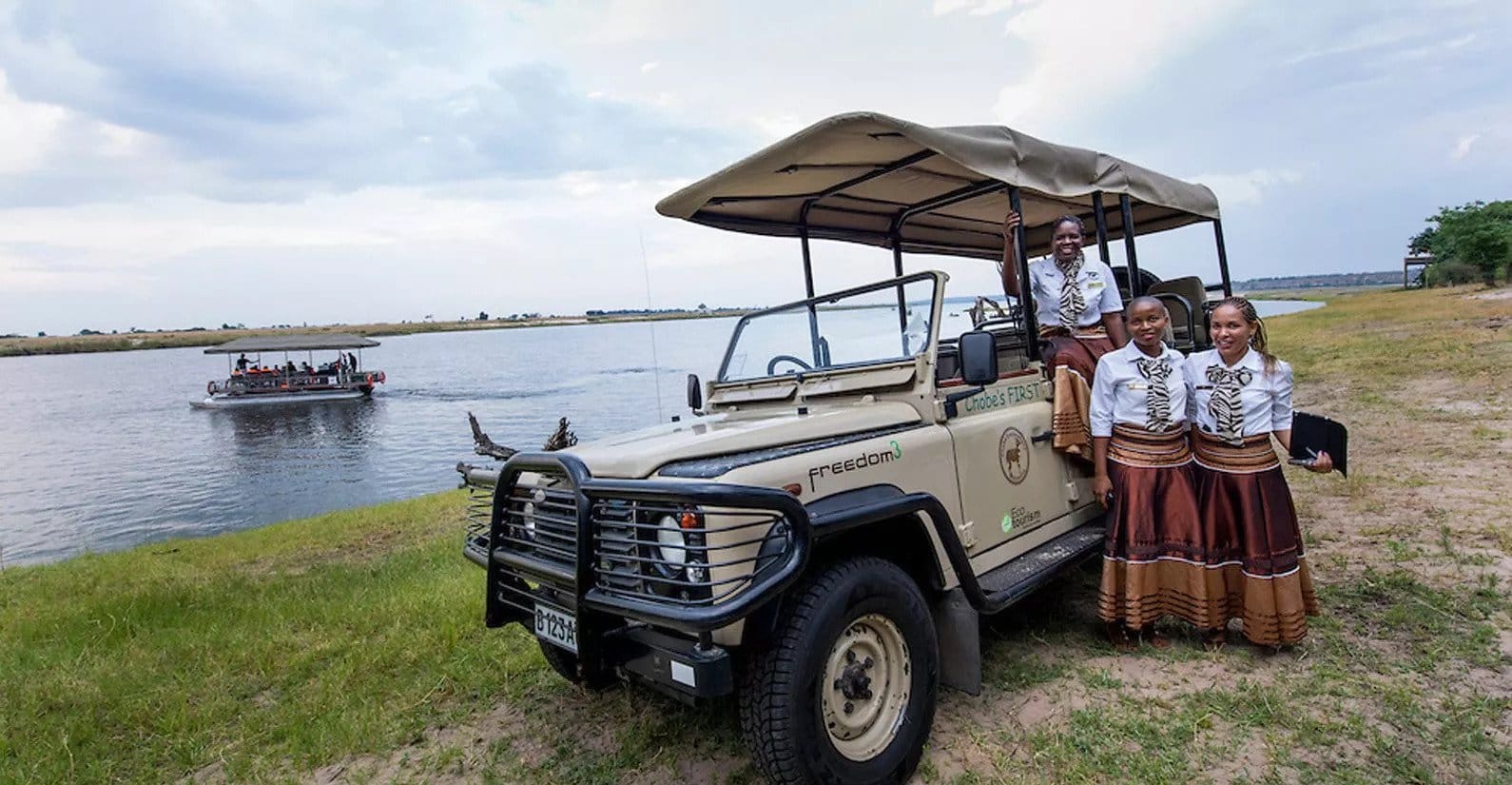
If you would like to know more about how you can leave your Legacy in Africa, get in touch with one of our safari experts.
Head office:
7 Bree Street, 6th Floor, Touchstone House, Cape Town, South Africa
+27 (0)21 201 2484
[email protected]
United Kingdom: Sportsman Farm, St Michaels, Tenterden, Kent
Ker & Downey® Africa is compliant with COVID-19 Industry Protocols.


Head office: 7 Bree Street, 6th Floor, Touchstone House, Cape Town, South Africa
+27 (0)21 201 2484
[email protected]
United Kingdom: Sportsman Farm, St Michaels, Tenterden, Kent
Ker & Downey® Africa is compliant with COVID-19 Industry Protocols.